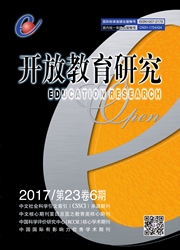

 中文摘要:
中文摘要:
近年来,大规模开放在线课程(MOOCs)受到全球高等教育领域的广泛关注,吸引了各类媒体的大量报道.也引发了许多商业公司的投资兴趣。本研究在对MOOCs的起源与内涵分析的基础上,系统梳理了当前国内外有代表性的13个MOOCs项目,并从内容、工具和实践三个维度进行对比分析,旨在为我国MOOCs的建设和应用提供借鉴。比较研究发现,国内外有代表性MOOCs项目:1)推出的课程类型各有侧重,在课程组织方式上表现为有时间节点和无时间节点两种,在课程内容、交互和评估设计三方面也表现出一定异同;2)在工具使用方面大多采用非开源的学习管理系统和主流的社交软件,并致力于各种学习工具的开发;3)在运营方式上尚处于探索阶段,在课程内容版权方面大多未采用知识共享协议,在学生学习结果的认证方面仍以提供证书为主,少数提供学分认证。上述研究结果对我国MOOCs的建设有三点启示:1)课程设计要以学习者为中心,注重交互和评估设计;2)根据实际情况选用或开发MOOCs学习管理系统,注重各种工具的开发;3)探索多种运营方式,促进我国MOOCs项目的可持续发展。
 英文摘要:
英文摘要:
In recent years, massive open online courses ( MOOCs ) have attracted world wide extensive attentions in thefield of higher education. Various types of media made a large number of reports on MOOCs. Many companies also showed their interests in developing and implementing MOOCs. The United States took the lead in diffusing MOOCs practice and put forward famous projects such as Udemy, Udacity, Coursera, edX and etc. During the similar time period, some European companies, together with local higher education institutions, launched their own MOOCs projects. The Ministry of Education in China and leading Chinese universities are also actively exploring MOOCs with its own features.
 同期刊论文项目
同期刊论文项目
 同项目期刊论文
同项目期刊论文
 期刊信息
期刊信息
